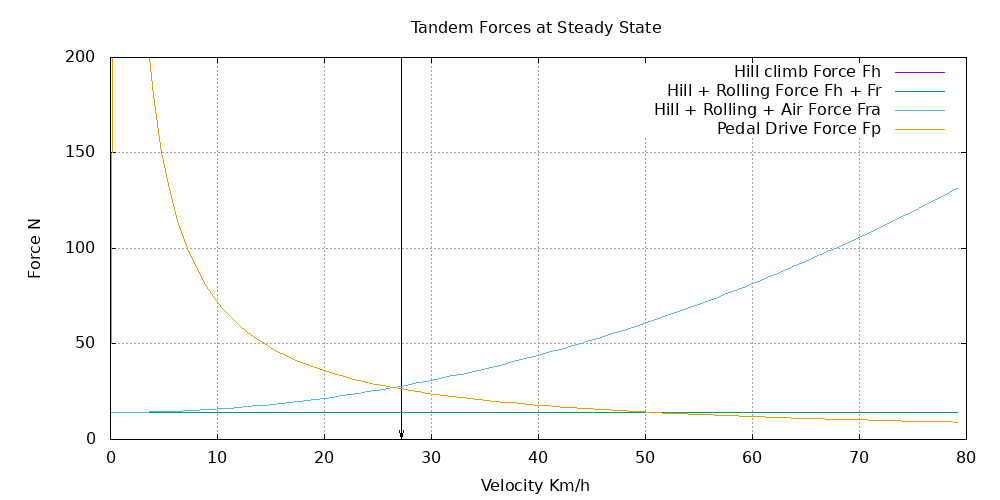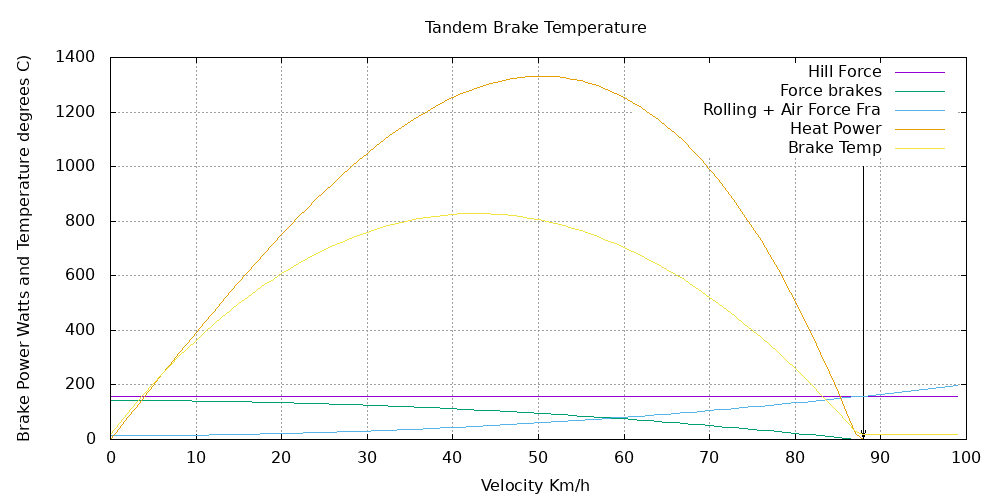Tandem Brake Heat Physics
To use enter the parameters for your Tandem in the form below and click on the 'Calculate' button. You can use the Config Name to use some stadrad parameters.
Plot of Tandem speed based on forces at work

This simulation shows the speed of a tandem (or solo bike) given the parameters configured. Where the black arrow crosses the orange and blue lines will be the steady state, where the forces balance. The tandem will accelerate until this point is reached. This will be the tandems maximum speed on the flat with no wind.
Tandem steady state speed: 27.200000000000003 Km/H
Plot of Brake power and temperature downhill based on forces at work

This is a rough simulation showing the amount of brake power dissipated to hold the tandem at a steady speed on the given gradient assuming a very long hill. Based on having 2 brakes that can disapate this heat at the 2.0 thermal resistance C/W rate, it shows the temperature of each of the bake systems. The thermal resistance C/W rate depends on the type of brakes in use and how well they can disapate the heat. The initial parameter given is just an idea. Large diameter wheel rim brakes or large area disk brakes will dissipate the heat better and hence run at a cooler temperature. The black arrow indicate the terminal speed with no brakes applied. Note highest temperature is at a mid speed decent. To reduce brake temperature it is best to go down slowly or fast (if safe to do so !). Going down at a mid speed is the worst for brake temperature and more likely to result in brake fade or failure. Having a third brake, ideally one that can dissipate heat well (such as a drum brake) helps a lot.
